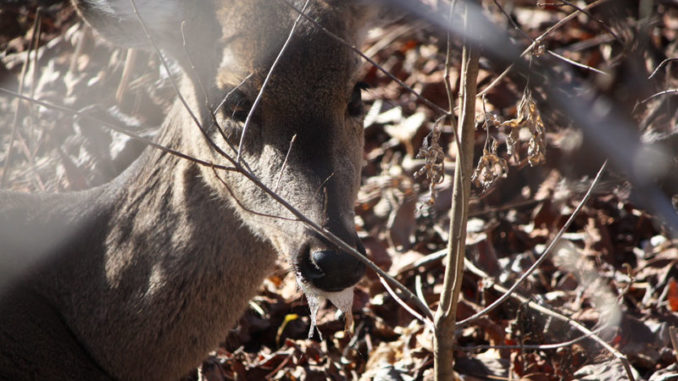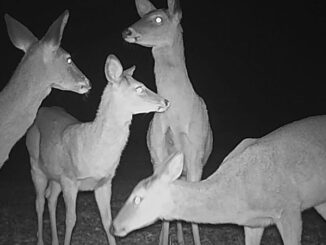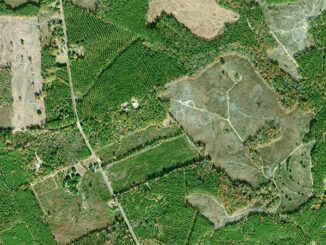
Has LSU researcher found a cure for CWD? Scientists say, ‘no’
Over the past month, numerous magazines and newspapers have published articles about a Louisiana State University researcher finding a cure for chronic wasting disease (CWD). But the vast majority of state and national wildlife agencies discount these finds, and the claims of a cure actually aren’t even new.
Dr. Frank Bastian, a disease researcher and clinical professor of neurosurgery and pathology at Louisiana State University, recently said he is within a year or two of a finding a cure for CWD, and those wildlife biologists and other scientists studying the disease are wrong about its cause.
Claims aren’t new
Bastian said the same things in 2017. In fact, as far back as 2002, he presented similar findings in an interview with outdoor writer Bryan Hendricks of North American Hunter magazine, so skepticism among Bastian’s peers is understandable.
“It’s been over 15 years since he first made those claims, yet no other researcher has been able to reproduce his findings,” said Merril Cook, a wildlife biologist with the North Carolina Wildlife Resources Commission. “And there’s no sign he’s made any progress since then to suggest he’s any closer to a cure.”
Bastian’s response is that no other researchers are trying to reproduce his results because all the research funding is being swayed by those who believe prions, rather than spiroplasma, is the root of CWD.
What causes CWD?
According to most biologists, CWD is caused by mutated proteins called prions that affect brain tissue and other areas of a deer’s central nervous system. This is accepted by all state wildlife agencies and organizations like the Quality Deer Management Association. But Bastian disagrees, saying that prions aren’t the cause of CWD, but simply a product of bold bacteria called spiroplasma that he believes is the actual cause of the disease.
Bastian said CWD can be produced without the presence of prions, but Brent Race, a scientist with the Laboratory of Persistent Viral Diseases at the National Institute of Allergy and Infectious Diseases, found the opposite while trying to reproduce Bastian’s findings. While failing to duplicate those findings, Race said he found that prion infection can occur even in the absence of spiroplasma.
Chronic wasting disease is a transmittable disease that affects deer, elk, and other members of the cervid family.
Deer pass the disease on through contact with other deer, or through contact with urine, saliva, infected carcasses and even infectious materials in soil, which can hold remnants of the disease for up to 20 years. The disease is 100-percent fatal.
Coined Zombie Deer
CWD is sometimes referred to as the “zombie deer disease” because infected deer often salivate heavily, look lost, are emaciated and confused. But the infection hasn’t led to aggressive biting or other behavior by deer, and so far, no humans have contracted the disease, but scientists worry that’s a possibility.
“A group of individuals that are known to have eaten meat from a CWD-positive deer about 15 years ago are tested regularly, and so far, none has shown any sign of the disease,” said Cook, who pointed out that mad cow disease, basically a bovine version of CWD, was discovered about 10 years before humans were ever impacted by eating infected meat — leading to Creutzfeldt-Jakob Disease.
Louisiana still CWD free
No CWD-positive deer have been found in Louisiana, but Texas, Arkansas and Mississippi all have confirmed cases of CWD among their deer herds. In all, 26 states and four Canadian provinces have deer or elk that have been infected with CWD. Louisiana is working to keep it out of the state with bans on importing certain deer parts from outside the state.
The Louisiana Department of Wildlife and Fisheries can test samples from any deer that you kill or find dead. The agency suggests hunters remove the deer’s head about 5 inches below the ears, then place in a refrigerator or on ice, but do not freeze. Then, call the sampling location nearest you:
For more information on CWD and what Louisiana is doing to stay free of the disease, visit http://www.wlf.louisiana.gov/hunting/CWD.
Louisiana Department of Wildlife and Fisheries sampling centers
- Hammond Office 985-543-4777
- Lafayette Office 337-262-2080
- Lake Charles Office 337-491-2575
- Minden Office 318-371-3050
- Monroe Office 318-343-4044
- Pineville Office 318-487-5885

